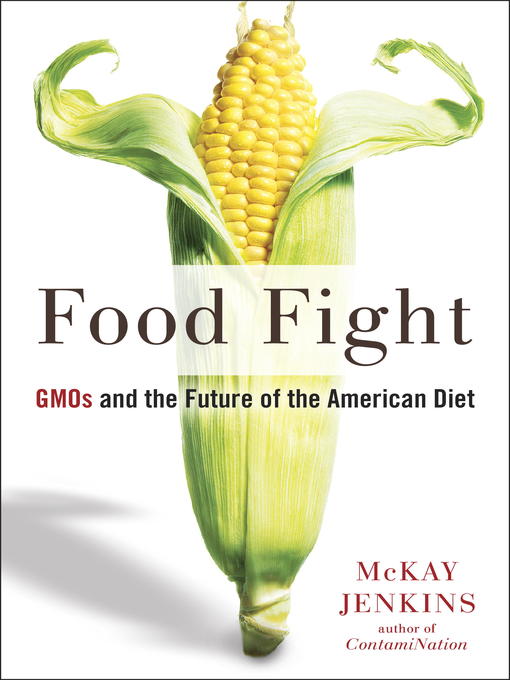
Food Fight
GMOs and the Future of the American Diet
کتاب های مرتبط
- اطلاعات
- نقد و بررسی
- دیدگاه کاربران
نقد و بررسی

October 24, 2016
Jenkins (ContamiNation), a professor of English, journalism, and environmental humanities at the University of Delaware, outlines many of the arguments for and against genetically modified organisms in this accessible volume on global food supplies and everyday diets. He interviews “some of the world’s great agricultural visionaries, some of whom take radically different approaches to the question of GMOs.” He speaks with farmers “who think GMOs will help move the world closer to sustainability” and others who believe they will “accelerate our ecological demise.” Jenkins divides his balanced discussion into three main sections. The first looks at the general safety of GMOs, how they are tested, and how they are labeled. The second section pinpoints instances where GMOs have affected specific communities either positively or negatively. Hawaii, for example, has seen its commercial papaya crops saved by genetic modifications to counter ringspot virus, yet many Hawaiians have battled multinational agrochemical companies to get full disclosure about the safety of chemicals sprayed on GM crops there. In the book’s final section, Jenkins examines what the future might hold for various farming practices and systems, both domestically and abroad. Highlighting the pros and cons of this contentious topic, Jenkins gives conscientious readers plenty to chew on.

November 1, 2016
There are no easy answers to questions about genetically modified foods, but environmental journalist Jenkins lays out the promise and the peril of the contemporary industrialization of food production.Jenkins (English, Journalism, and Environmental Humanities/Univ. of Delaware; What's Gotten into Us?: Staying Healthy in a Toxic World, 2011, etc.) chronicles his interviews with scientists, farmers, and activists across the country in his exploration of the safety of genetically modified organisms, their sustainability, their potential to feed a booming world population, and the hazards posed by the accompanying system of industrialized agriculture that is wiping out small farms. It can be argued that the problem is not the technology but rather the industrial farming system's widespread use of pesticides and herbicides. The safety question remains open with plenty of research still required, but the author points out that nearly all of the billions of cows, hogs, chickens, and turkeys consumed for the last couple of decades by Americans have been raised on GMO grains. Throughout, the author puts a human face on the controversy over GMOs with anecdotes about, and quotes from, individuals with a variety of viewpoints. An example is the story of the industry-saving development of a genetically modified papaya in Hawaii and the fierce fight in that state between pro and anti-GMO forces. Jenkins makes the point that while genetic engineering offers the potential to improve nutrition globally, large biotech food corporations have so far focused their attention elsewhere--e.g., in North America on highly profitable commodity crops like corn, soy, and canola. Jenkins clearly favors a kind of middle way of farming in which enlightened local farmers use technology on a scale that minimizes the hazards of industrialized agriculture. Perhaps not surprisingly, the author concludes with scenes of people cultivating their own gardens, including his students, who find joy on a local farm pulling weeds and hoeing beans. Impressive research into a complex situation presented in a highly readable form.
COPYRIGHT(2016) Kirkus Reviews, ALL RIGHTS RESERVED.

























دیدگاه کاربران